NABH Priorities for the 117th Congress Now Available
NABH this week released its updated advocacy agenda, NABH Priorities for the 117th Congress, in a document available on the association’s homepage.
In previous years, NABH released its Legislative and Regulatory Priorities this time of year at the Annual Meeting in time for Hill Day. This year, NABH updated the resource’s name to reflect the association’s advocacy priorities for the new Congress.
Two notable additions this year include “Increase Crisis Stabilization Services for 988 Hotline Calls” and “Maintain Coverage of Tele-Behavioral Healthcare.” The former relates to the universal, toll-free crisis hotline that holds great promise to prevent tragic outcomes and increase access to mental health and addiction treatment, while the latter advocates for expanded coverage of mental health and addiction treatment services via telehealth that have been critical during the Covid-19 global pandemic.
Each of the priorities explains an important advocacy issue for NABH and also outlines specific next steps to address it.
NABH urges its members to review the NABH Priorities for the 117th Congress and contact any member of the NABH team with questions.
Senate Passes Bill to Extend Medicare Sequestration, Staving Off Automatic Payment Cuts
The Senate this week passed legislation that would provide a 9-month extension of the Medicare sequester moratorium that the CARES Act established and that would cut Medicare provider payments by 2%.
Late last year, the Consolidated Appropriations Act of 2021 provided a three-month extension of the Medicare sequestration moratorium, which is set to expire on March 31. The House is expected to consider the Senate-passed bill when Congress returns the week of April 12.
It is also expected that the Centers for Medicare & Medicaid Services (CMS) will hold Medicare claims until the bill is signed into law, as the agency has done in the past.
Senate Confirms Vivek Murthy as U.S. Surgeon General
The Senate on Tuesday voted 57-43 to confirm Vivek Murthy, M.D. as U.S. surgeon general, a position Murthy held from 2014 through 2017.
As surgeon general, Murthy, 43, will oversee the U.S. Public Health Service commissioned corps, a uniformed service of about 6,000 public health workers who have helped manage the coronavirus response and administer vaccines.
Sen. Bill Cassidy (R-La.), a physician, as well as Sens. Susan Collins (R-Maine) and Mitt Romney (R-Utah) were among the seven Senate Republicans who supported Murthy’s confirmation.
Late last week, the Senate confirmed former California Attorney General Xavier Becerra as secretary of the U.S. Health and Human Services (HHS) Department. Earlier, Becerra served in Congress on the powerful House Ways and Means Committee.
The Senate also has confirmed Rachel Levine, M.D., a pediatrician who served most recently as the secretary of the Pennsylvania Department of Health, as assistant secretary of health at HHS.
HHS-OIG Highlights ‘Staff Burnout and Trauma’ in Report About Covid-19’s Effect on Hospitals
HHS’ Office of Inspector General (OIG) listed “Staff Burnout and Trauma” as one of U.S. hospitals’ main challenges in a report that concluded the Covid-19 pandemic has “significantly strained” U.S. healthcare delivery.
“Hospitals reported that increased hours and responsibilities, along with other stressors caused by the Covid-19 pandemic, resulted in staff being exhausted, mentally fatigued, and sometimes experiencing possible post-traumatic stress disorder (PTSD),” the 62-page report noted. “Several hospitals reported that witnessing Covid-19-related deaths especially weighed on staffs’ mental health.”
The OIG’s office spoke with representatives from 320 hospitals that were part of a random sample of 397 hospitals. Click here to read the full report.
Psychiatry Among Specialties With ‘Sizeable Increases’ in Last Five Years
Psychiatry joins the specialties of neurology, family medicine, emergency medicine, and internal medicine that have seen sizeable increases in the number of positions offered in the last five years, the National Residency Matching Program announced March 19.
The organization celebrated “Match Day” with the thousands of applicants and programs participating in the 2021 Main Residency Match, in which medical students and graduates from the United States and around the world learned which U.S. residency programs they will train for the next three to seven years.
This year’s results were highly anticipated, given the shift to virtual recruit due to the Covid-19 pandemic. The National Resident Matching Program noted that specialties serve as indicators of workforce supply, as match results may be a predictor of future physician workforce supply—especially when examining growth in specialties over time.
Register to Attend the 2021 Rx Drug Abuse & Heroin Summit
The annual Rx Drug Abuse and Heroin Summit, known as the largest annual conference that addresses America’s opioid and addiction crises, will be held virtually this year from April 5-8.
The conference will present more than 75 sessions across nine educational tracks and will cover topics ranging from prevention and treatment to public safety and technology. NABH Director of Quality and Addiction Services Sarah Wattenberg will present with representatives from the Office of National Drug Control Policy, the U.S. Drug Enforcement Administration, and the Veterans Affairs Department in a session titled, “Federal and Private Sector Responses to Opioid Treatment Issues During the Covid-19 Pandemic.”
For additional information, download the conference brochure, and click here to register.
Save the Date: NABH 2021 Annual Meeting
NABH will host its 2021 Annual Meeting from Wednesday, Oct. 6 – Friday, Oct. 8, 2021 at the Mandarin Oriental Washington, DC.
The association re-scheduled for this later date in 2021 due to the ongoing Covid-19 pandemic. We hope you can join us!
After 2021, NABH will host its subsequent Annual Meetings in June. Please save the date for these future NABH Annual Meetings:
June 13-15, 2022
June 12-14, 2023
We look forward to seeing you again in Washington!
Fact of the Week
The National Center for PTSD estimates that 28% of people who have witnessed a mass shooting will suffer from post-traumatic stress disorder, and about one-third from acute stress disorder.
For questions or comments about this CEO Update, please contact Jessica Zigmond

